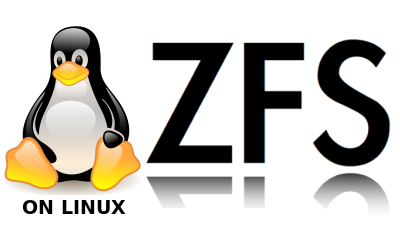ZFS on Linux is an advanced file system and volume manager which was originally developed for Solaris and is now maintained by the OpenZFS community, on which cStor data engine is built.
We have a separate document with contribution guidelines.
In addition to standard dependencies of ZFS on Linux project following packages need to be installed on a ubuntu machine:
sudo add-apt-repository -y ppa:ubuntu-toolchain-r/test
sudo apt-get update -qq
sudo apt-get install --yes -qq gcc-6 g++-6
sudo apt-get install --yes -qq build-essential autoconf libtool gawk alien fakeroot linux-headers-$(uname -r) libaio-dev
sudo apt-get install --yes -qq zlib1g-dev uuid-dev libattr1-dev libblkid-dev libselinux-dev libudev-dev libssl-dev libjson-c-dev
sudo apt-get install --yes -qq lcov libjemalloc-dev
sudo apt-get install --yes -qq parted lsscsi ksh attr acl nfs-kernel-server fio
sudo apt-get install --yes -qq libgtest-dev cmake
sudo unlink /usr/bin/gcc && sudo ln -s /usr/bin/gcc-6 /usr/bin/gcc
sudo unlink /usr/bin/g++ && sudo ln -s /usr/bin/g++-6 /usr/bin/g++Google test framework library does not have a binary package so it needs to be compiled manually:
cd /usr/src/gtest
sudo cmake -DBUILD_SHARED_LIBS=ON CMakeLists.txt
sudo make
# copy or symlink libgtest.a and libgtest_main.a to your /usr/lib folder
sudo cp *.so /usr/libClone the shim layer which adds the core interfaces..
git clone https://github.com/openebs/spl
cd spl
git checkout spl-0.7.9
sh autogen.sh
./configure
make -j4Special configure option --enable-uzfs should be used in order to create
zfs and zpool commands which don't call into the kernel using ioctls, but
instead call into uZFS process for serving "ioctls" using unix domain socket.
Other than that the build steps are the same as for ZoL:
git clone https://github.com/openebs/zfs.git
cd zfs
./autogen.sh
CFLAGS="-g -O0" ./configure --enable-debug --enable-uzfs=yes
makeAdditional configure option --with-fio=<path-to-fio-repo> can be supplied
in case that fio engine for zrepl is wanted.
This assumes that you have configured zfs with --enable-uzfs=yes option.
To try zpool and zfs commands, start cmd/zrepl/zrepl binary with sudo and
leave it running. Now zpool and zfs commands from cmd/ directory can be
run in usual way and they will act on running instance of zrepl.
Standard IO benchmarking tool fio can be used with special engine for
zrepl. Make sure that uzfs was configured and built with fio engine.
If that is the case, then the fio can be started as follows (replace
$UZFS_PATH by path to built uzfs repository):
LD_LIBRARY_PATH=fio
LD_LIBRARY_PATH=$UZFS_PATH/lib/fio/.libs fio config.fioExample of fio config file can be found in lib/fio directory.
A docker image with zrepl for testing purpose can be built as follows. The privileged parameter when starting container is to enable process tracing inside the container. The last command gets you a shell inside the container which can be used for debugging, running zfs & zpool commands, etc. Explanation of the two mounted volumes follows:
- /dev: All devices from host are visible inside the container so we can create pools on arbitrary block device.
- /tmp: This is a directory where core is dumped in case of a fatal failure. We make it persistent in order to preserve core dumps for later debugging.
sudo docker build -t my-cstor .
sudo mkdir /tmp/cstor
sudo docker run --privileged -it -v /dev:/dev -v /run/udev:/run/udev --mount source=cstortmp,target=/tmp my-cstor
sudo docker exec -it <container-id> /bin/bashYou could also run local image repo and upload the test image there:
sudo docker run -d -p 5000:5000 --restart=always --name registry registry:2
sudo docker build -t localhost:5000/my-cstor .
sudo docker push localhost:5000/my-cstorIn order to print debug messages start zrepl with -l debug argument. If
running zrepl in container with standard entrypoint.sh script, set env
variable LOGLEVEL=debug. To do the same when running zrepl on k8s cluster
use patch command to insert the same env variable to pod definition.
Details differ based on how zrepl container was deployed on k8s cluster:
kubectl patch deployment cstor-deployment-name --patch "$(cat patch.yaml)"where patch.yaml content is:
spec:
template:
spec:
containers:
- name: cstor-container-name
env:
- name: LOGLEVEL
value: "debug"
Disk write cache must be disabled for any device not managed by linux sd driver. Cache flush is not supported for other drivers than sd.
Make sure to run cstyle on your changes before you submit a pull request:
make cstyleAnd assure that the tests are passing. For possible tests to run see .travis.yml file in root directory. Here is an example of running a couple of available tests:
cmd/ztest/ztest -V
tests/cbtest/gtest/test_uzfs
tests/cbtest/gtest/test_zrepl_prot
sudo tests/cbtest/script/test_uzfs.sh